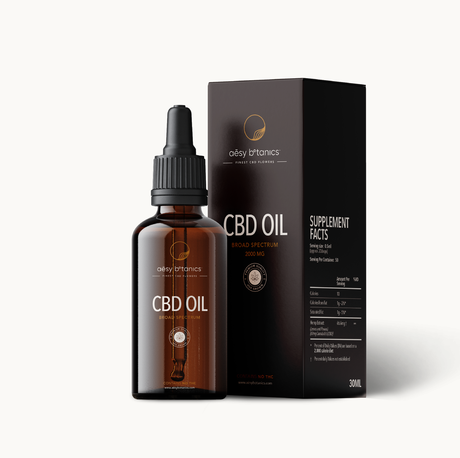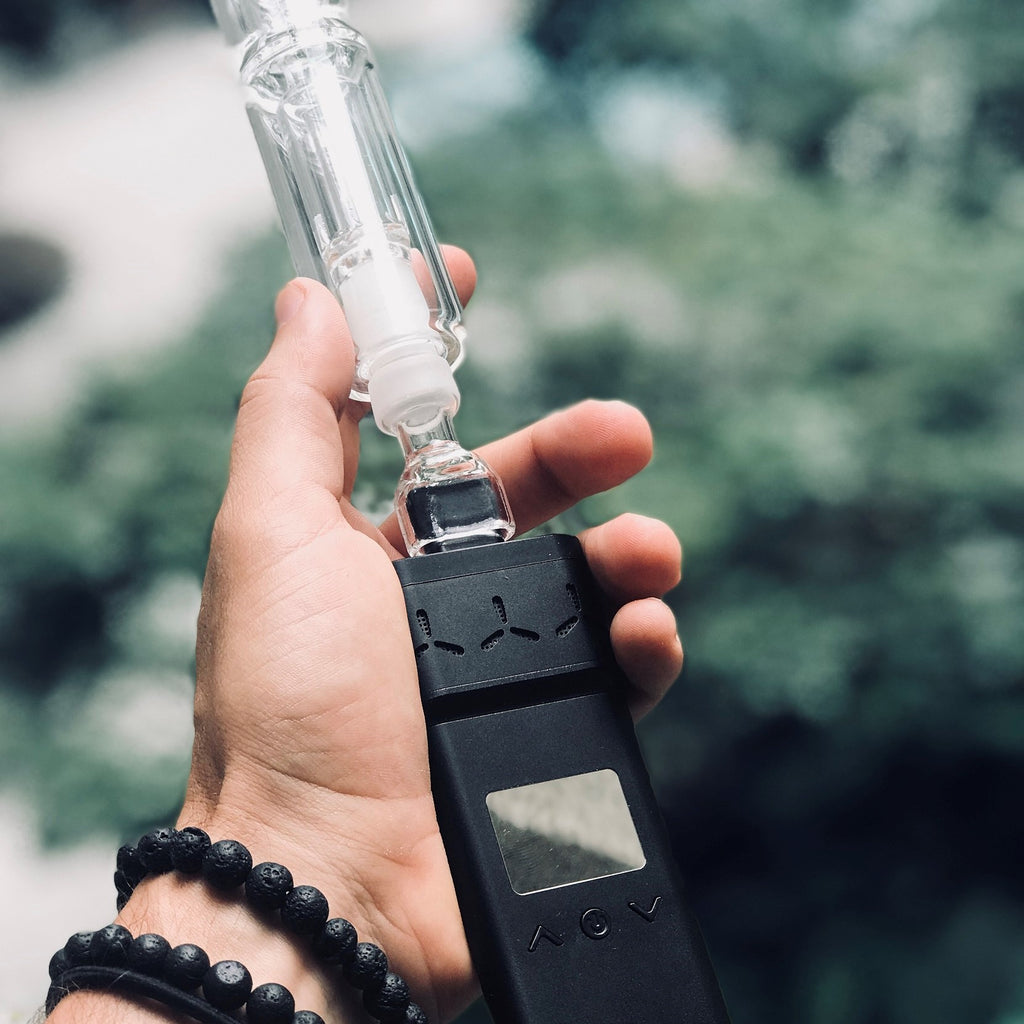CBD vs. THC - Key Differences

CBD vs THC- major differences you need to know
Cannabinoids, the collective name for the plant's chemical components, number over 113. The chemical substances CBD and delta-9-tetrahydrocannabinol (THC) produced from cannabis are called cannabinoids.
Cannabis' possible health impacts and advantages have piqued public curiosity in recent years. These two cannabinoids have gotten a lot of attention because of it.
As more states legalize marijuana and its derivatives, consumer interest is sure to rise. CBD, THC, or a combination of the two, are now available in a variety of medicines intended to treat conditions including stress, anxiety, and sleeplessness. For a better understanding of these drugs' possible adverse effects and advantages, it's necessary to first distinguish between CBD and THC.
What Is CBD?
Often referred to as CBD, cannabidiol (also known as hemp oil) is the second most abundant chemical ingredient discovered in cannabis. CBD, which was first identified in the 1940s, has lately gained popularity as a natural therapy for a variety of ailments and diseases.
It may be generated from hemp or from marijuana, depending on the source. CBD obtained from hemp still includes tiny quantities of THC, however CBD derived from marijuana may have higher levels of THC.
What Is THC?
THC (delta-9-tetrahydrocannabinol) is the psychotropic element in cannabis, and it is the most prevalent in the plant. It is believed that THC stimulates the production of the brain chemical dopamine, which is responsible for activating the brain's reward system, according to the National Institute on Drug Abuse (NIDA).
1 DOPA is a neurotransmitter that has been shown to have a key function in mood and pleasure. THC causes individuals to feel euphoric because it promotes a higher-than-normal release of dopamine in their bodies.
THC is most often delivered via marijuana smoking, although it may also be found as a component in capsules, edibles, and oils, among other forms of delivery.
CBD vs. THC: Key Differences
THC and CBD both have an influence on the endocannabinoid system, which is a system that is critical in the maintenance of homeostasis in the body.
Researchers are still trying to figure out the ins and outs of this complicated system, but they do know that it is involved in a variety of activities such as memory, hunger, sleep, mood, and fertility.
While THC and CBD share similarities, there are some key differences between the two compounds.
|
Is illegal |
No |
Yes |
|
Produces a high |
No |
Yes |
|
Interacts with endocannabinoid system |
Yes |
Yes |
|
Has side effects |
Some |
Psychoactive side effects |
|
Shows on drug test |
Possibly |
Yes |
|
Relieves pain |
Yes |
Yes |
|
Reduces nausea |
Yes |
Yes |
|
Eases migraine |
Yes |
Yes |
|
Reduces anxiety |
Yes |
Yes |
|
Eases depression |
Yes |
No |
|
Decreases seizures |
Yes |
No |
|
Is anti-inflammatory |
Yes |
Yes |
|
Helps with insomnia |
Yes |
Yes |
|
Helps with psychosis |
Yes |
No |
|
Increases appetite |
No |
Yes |
|
Is used for various other conditions |
Yes |
Yes |
Psychoactive Properties.
CBD and THC have differing effects on the brain's receptors. As a result, CBD is not often associated with psychoactive effects—in other words, it will not cause you to get intoxicated.
THC, on the other hand, has been shown to have psychoactive properties. It is this chemical that is responsible for the euphoric feeling that many associate with marijuana.
Chemical Structure
Each of these cannabinoids has a molecular structure that is comparable to that of the body's own naturally occurring endocannabinoids. Endocannabinoids are neurotransmitters that have a physiological effect on the body.
Chemical messengers known as neurotransmitters are responsible for relaying impulses between nerve cells in the body. A vast variety of activities, including sleep, pain, hunger, mood and the immune system are influenced by their presence or absence in the bloodstream.
The basic structure of CBD and THC is the identical, but there are changes in how these molecules are ordered that are responsible for the variances in the effects they have on the body. They work in the body by binding to receptors in the same way as endocannabinoids do, causing a variety of effects.
Legality
Cannabis-related regulations in the United States are constantly developing. CBD is technically still classified as a Schedule I substance under federal law.
Although hemp has been removed from the Controlled Substances Act, the Drug Enforcement Administration (DEA) and the Food and Drug Administration (FDA) continue to designate CBD as a Schedule I controlled substance.
However, 33 states plus Washington, D.C. have enacted cannabis-related legislation, legalizing medicinal marijuana with high THC concentrations. Cannabis may need a prescription from a registered physician.
Additionally, numerous states have legalized cannabis and THC for recreational use.
CBD should be available in jurisdictions where cannabis is permitted for recreational or medicinal uses.
Before you attempt to purchase CBD or THC-containing products, it's critical to familiarize yourself with your state's regulations.
If you possess cannabis-related items in a state where they are illegal or do not have a valid medical prescription in a state where they are authorized for medical treatment, you may face legal consequences.
Potential Benefits
Cannabinoids such as THC and CBD are currently being studied for their possible health benefits. However, some evidence suggests they may be beneficial for a variety of illnesses, including:
- Epilepsy
- Anxiety
- Glaucoma
- Symptoms of HIV/AIDS
- Pain
- Opioid dependence
- Irritable bowel syndrome (IBS)
- Inflammatory bowel syndrome (IBD)
- Multiple sclerosis
- Sleep difficulties
- Movement disorders
Some variations exist between CBD and THC, despite the fact that they typically have comparable effects and are used to treat a variety of the same conditions.
CBD is often used to treat or even eliminate symptoms of conditions like the following:
- Anxiety
- Depression
- Inflammation
- Migraines
- Post-traumatic stress disorder (PTSD)
- Seizures
When supplied as medicinal marijuana, the cannabinoid THC may be utilized to treat a wide range of ailments. It might be beneficial for a variety of ailments, including the following:
- Glaucoma
- Insomnia
- Nausea; it may be helpful for alleviated nausea caused by cancer treatment
- Pain associated with conditions such as arthritis, fibromyalgia, and migraine headaches
- Poor appetite; including appetite problems caused by cancer treatment
- Tremors
While cannabis has not been licensed by the FDA to treat any ailment, the FDA has approved a small number of CBD and/or THC-containing medications. 2
Side Effects
CBD and THC, according to some studies, are typically harmless and have minimal negative effects.
However, even if these medications seem to be harmless, you might still suffer some side effects. The following are some unfavorable side effects:
- Changes in mood and appetite.
- Feelings of anxiety or other mood changes.
- Nausea and dizziness.
- THC use may also result in unpleasant side effects such as increased heart rate, dry mouth, and memory loss.
Short-term memory loss, decreased judgment, and slowed coordination are just a few of the side effects of marijuana use. Marijuana use has also been linked to cognitive impairment because of the way it affects brain development.
According to the National Institute on Drug Abuse (NIDA), THC affects the hippocampus and orbitofrontal cortex. New memories are formed in these parts of the brain, as well as the capacity to change focus from one task to another.
The capacity to learn and build new memories is harmed, as is the ability to carry out challenging activities while suffering from this condition.
How to Take THC and CBD
There are several ways to absorb THC and CBD. Smoking marijuana contains THC, however there are a variety of additional cannabis products available, such as:
- Oils
- Tinctures
- Sprays
- Vape products
- Edibles including gummies and chocolates
- Beverages containing marijuana oil
CBD, like THC, is available in a variety of forms. CBD oils can be made for vaping, although vaping has recently been linked to health problems.
Lotions and salves may be made with it and applied directly to the skin. Because these topical medications are applied topically rather than swallowed, their effects will be restricted to the area where they are applied.
It's also possible to consume CBD orally in the form of a tincture/oil/capsule/spritz. Gummies, sweets, and drinks containing CBD oil are all popular edible CBD products.
It's also critical to look at the formulation of CBD products before making a purchase. Only CBD is found in isolate goods. While full-spectrum CBD products include both CBD and THC, broad-spectrum CBD products contain additional cannabinoids outside those found in hemp except the psychoactive compound..
Which One Should You Take?
Selecting the right product may be influenced by your goals and objectives. In the event that you're attempting to relax or get a better night's sleep, CBD may be able to help without the psychoactive impacts of THC.
THC may be a better option for those who suffer from symptoms or disorders for which the drug has shown promise, such as tremors or an inability to eat well.
According to several studies, the therapeutic benefits of THC and CBD may be enhanced when the two cannabinoids are consumed together.
CBD and THC each function in various parts of the brain, and researchers are still trying to figure out exactly what each of these cannabinoids does on its own or in combination with one another.
Dose may affect CBD and THC's combined effects, according to research. Studies in 2019 have discovered that low dosages of CBD actually intensify the euphoric effects of THC whereas large doses of CBD lessen them, as one such research showed in 2019.
Drug Testing
Read a full article on hoe to pass a drugtest here.
Marijuana's primary psychoactive ingredient, THC, may be identified using a wide range of routine drug tests. Many drug tests do not check for cannabidiol, therefore CBD may be detected as well.
Although many CBD products contain no detectable quantities of THC, there are a few that do. If you consume a lot of CBD or are utilizing products that contain more THC than what the labelling states, you may be able to detect these little levels of THC.
Many CBD products are mislabeled and contain much more THC than their labels imply, according to the latest findings.
8 It's tough to tell how much THC you're receiving from these products since they aren't regulated.
Drug tests may still pick up traces of THC and CBD, even after you've stopped taking them, since they're both stored in fat cells in the body.
Before You Take THC or CBD
It's possible that THC and CBD have an impact on some health issues and interact with medicines, so proceed cautiously while using these products. THC and CBD These chemicals may have an effect on the way your body metabolizes pharmaceuticals. In rare circumstances, they might exacerbate anxiety already present.
Be cautious to verify your state regulations before purchasing a THC or CBD product to confirm that it is legal where you reside before making a final decision. Even while federal law stipulates that CBD products produced from hemp must contain less than 0.3 percent THC, several states have made even these minuscule levels unlawful.


